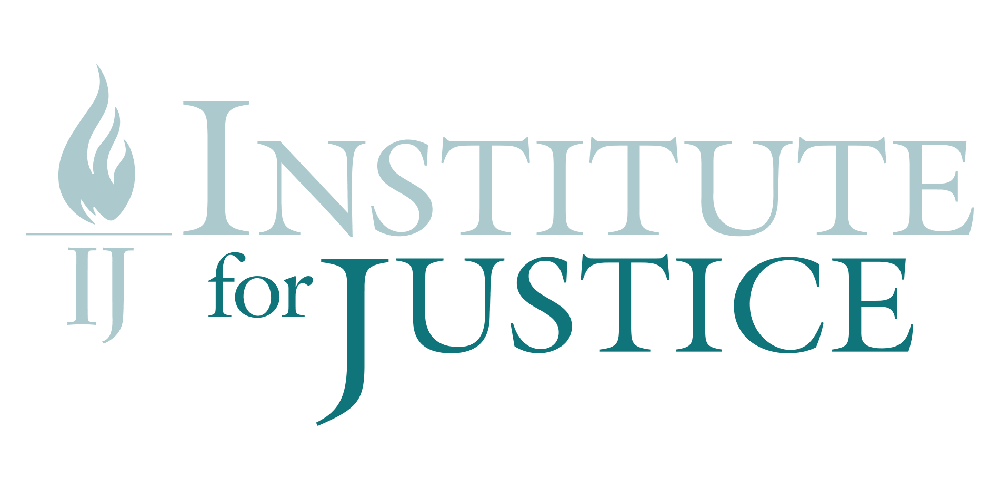Home > Rites and Rights Revisited
Rites and Rights Revisited
by Loren Talbot

“If you do end up in trouble, please do reach out.”
On April 4, INELDA and NEDA (National End of Life Doula Alliance) held a virtual town hall on recent legal challenges that end-of-life doulas and others in the deathcare field are facing. Attorneys Ben Field and Christian Lansinger, from the Institute for Justice (IJ), shared their knowledge on these cases, which threaten the right to free speech and the right to earn an honest living. The event was moderated by Angelyn C. Frazier-Giles, INELDA’s board president, and Ashley Johnson, NEDA’s president. The discussion focused on IJ’s recent defense of the collective Full Circle of Living and Dying, based in California, and on Lauren Richwine’s practice, Death Done Differently, located in Indiana. The conversation addressed how these rare cases can impact end-of-life doulas across the United States.
On April 4, INELDA and NEDA (National End of Life Doula Alliance) held a virtual town hall on recent legal challenges that end-of-life doulas and others in the deathcare field are facing. Attorneys Ben Field and Christian Lansinger, from the Institute for Justice (IJ), shared their knowledge on these cases, which threaten the right to free speech and the right to earn an honest living. The event was moderated by Angelyn C. Frazier-Giles, INELDA’s board president, and Ashley Johnson, NEDA’s president. The discussion focused on IJ’s recent defense of the collective Full Circle of Living and Dying, based in California, and on Lauren Richwine’s practice, Death Done Differently, located in Indiana. The conversation addressed how these rare cases can impact end-of-life doulas across the United States.

Constitutional Challenges
The Institute for Justice is a national public interest law firm that represents its clients pro bono, or free of charge, by standing up for people’s constitutional rights. One thing IJ does is to “… carve out a space so that they [individuals] can pursue an honest living without unnecessary or irrational government regulation that gets in the way,” Ben shared. This has led to many cases defending deathcare delivery services and regulation around the country. One of these cases included the defense of St. Joseph’s Abbey. This monastery makes simple pine-box coffins, and it was required to get a funeral director’s license to sell its caskets. Another example involved the targeting of land owners in Michigan who sought to create a green cemetery on their property. In this case, a community (rather than a funeral-licensing body) attempted to impose a strict zoning code on these land owners.
Many of the challenges faced by IJ’s clients emerge after regulators from within the state funeral-licensing bodies require entities to be licensed as funeral homes or funeral directors, in order to offer their services. The license can be very costly and not applicable to the services being offered. These cases have been argued on the constitutional basis of the First and 14th amendments. The First Amendment protects the right to free speech. And, as Ben and Christian shared, “It gets very, very, very strict, constitutional protection. If the government wants to stop you from speaking, it has to show that it has a really, really good reason to do that.”
The 14th Amendment guarantees that everyone has a right to due process of law and to equal protection of the law. For someone to defend this amendment, they have to prove that your service is not creating harm, and that the government is being irrational. It also states that someone providing a lawful service cannot be treated differently for an arbitrary reason. In some jurisdictions, the courts have also held that it’s not a legitimate interest for the government to try to protect one industry over another. So while there is a higher bar of proof required to prove the 14th Amendment over the First Amendment, IJ has been successful in providing evidence that it’s irrational to ask for certain licenses that don’t pertain to the business or individual.
Defending End-of-Life Doulas
Every state (aside from Colorado) has its own licensing board, and each one has different requirements for issuing state licenses to funeral-service providers. These state funeral-licensing laws are vague, and the services of some doulas may be interpreted to fall under their jurisdiction. Licenses for funeral directors and funeral homes are often bundled together, and in 10 states families are required to hire a funeral director. Because of this, it is important for each practicing doula to be aware of their state’s requirements. The two cases mentioned above have set precedent in their regions.

Sacramento-area doulas Akhila Murphy and Donna Peizer, of Full Circle of Living and Dying, offer services that include doula support, advanced-care directives, home funeral-planning assistance, and more. In 2019, the state of California told Full Circle to stop its activities because it said Full Circle was operating a funeral establishment without a license. The state said that in order to be in compliance with the law, Full Circle would need to build a funeral home with a room dedicated to storing or embalming bodies, and that Akhila and Donna would need to pass a funeral director licensing exam. IJ took on the case, arguing both the First Amendment and the 14th Amendment.
According to the IJ press release, “The trial court agreed, holding that requiring doulas to build full-service funeral homes in order to operate violates their right to earn an honest living, and that preventing doulas from providing their clients with individualized end-of-life planning advice or from truthfully advertising their services violates their First Amendment rights.” This allowed for a victorious resolve for Full Circle. And, as Ben stated in the town hall, “The bottom line is that if you are in California and you’re doing the kind of practice that Full Circle does, there is now very, very strong authority for the principle that you should not be regulated.”
California
Sacramento-area doulas Akhila Murphy and Donna Peizer, of Full Circle of Living and Dying, offer services that include doula support, advanced-care directives, home funeral-planning assistance, and more. In 2019, the state of California told Full Circle to stop its activities because it said Full Circle was operating a funeral establishment without a license. The state said that in order to be in compliance with the law, Full Circle would need to build a funeral home with a room dedicated to storing or embalming bodies, and that Akhila and Donna would need to pass a funeral director licensing exam. IJ took on the case, arguing both the First Amendment and the 14th Amendment.
According to the IJ press release, “The trial court agreed, holding that requiring doulas to build full-service funeral homes in order to operate violates their right to earn an honest living, and that preventing doulas from providing their clients with individualized end-of-life planning advice or from truthfully advertising their services violates their First Amendment rights.” This allowed for a victorious resolve for Full Circle. And, as Ben stated in the town hall, “The bottom line is that if you are in California and you’re doing the kind of practice that Full Circle does, there is now very, very strong authority for the principle that you should not be regulated.”

Lauren Richwine of Death Done Differently, based in Fort Wayne, Indiana, reached out to IJ in 2023 after someone submitted an anonymous complaint that her business was not licensed as a funeral home. Lauren, whose services include planning for end of life, rituals, and grief support, was ordered to stop talking with her clients about death. “In order for Lauren to continue her business,” Christian said, “she would have had to not only get a funeral director’s license but a funeral home license, and build a full-fledged funeral home with an embalming room and the rest that’s not feasible for any end-of-life doula.”
In Lauren’s case, since she was providing only “speaking-based services,” IJ brought a First Amendment challenge. The legal team received a preliminary injunction, which has allowed Lauren to reopen her website and business while the lawsuit she filed is pending. As Christian shared, “The judge agreed, saying if families choose what services they want from a funeral home find value in a knowledgeable advisor without a financial stake in their purchases. That is the consumer’s choice to make.” The case now continues on to the Seventh Circuit, one of those larger federal courts covering Wisconsin, Illinois, and Indiana.
Indiana
Lauren Richwine of Death Done Differently, based in Fort Wayne, Indiana, reached out to IJ in 2023 after someone submitted an anonymous complaint that her business was not licensed as a funeral home. Lauren, whose services include planning for end of life, rituals, and grief support, was ordered to stop talking with her clients about death. “In order for Lauren to continue her business,” Christian said, “she would have had to not only get a funeral director’s license but a funeral home license, and build a full-fledged funeral home with an embalming room and the rest that’s not feasible for any end-of-life doula.”
In Lauren’s case, since she was providing only “speaking-based services,” IJ brought a First Amendment challenge. The legal team received a preliminary injunction, which has allowed Lauren to reopen her website and business while the lawsuit she filed is pending. As Christian shared, “The judge agreed, saying if families choose what services they want from a funeral home find value in a knowledgeable advisor without a financial stake in their purchases. That is the consumer’s choice to make.” The case now continues on to the Seventh Circuit, one of those larger federal courts covering Wisconsin, Illinois, and Indiana.
What Doulas Should Know
Ben led the conversation, sharing that there are “thousands of people out there in the country who are working in the end-of-life space, who are doing end-of-life doula work, and for the most part they’re able to do that without trouble. … This presentation is about the two people who have ended up in that worst-case scenario.” For those currently practicing as doulas, the town hall sought to inform and educate on best practices. There were many questions asked, and though we couldn’t get to them all, we hope to address some of the overarching ones in the near future.
The IJ team shared these tips as general lessons for doulas:
- Review your state’s funeral-licensing laws.
- Consider disclaimers on documents or web pages regarding licensing status.
- Bear in mind that most regulatory regimes are complaint-driven.
- Speech receives more constitutional protection than conduct.
- Non-technical activities and avoiding holding money pre-need may be more amenable to constitutional defenses.
IJ also welcomes hearing from anyone whose doula practice is challenged by their state laws. As Ben stated, “We’re not promising any representation now, but if you do end up in trouble with your state licensing authority, we would love to hear from you; even if we can’t represent you, we might well have people that we can put you in touch with. Full Circle and Lauren are some of my favorite clients, and I would love to have more end-of-life doula clients.”
For more information, click below to view:
Rites and Rights: Legal Considerations for End-of-Life Doulas.
Closed captions available
Additional information can be found on the Funeral Consumers Alliance.

